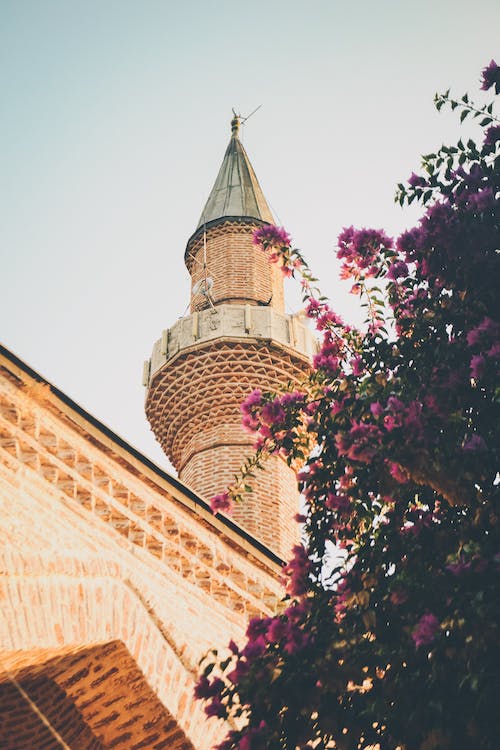
Friday, known as “Jumma” in Arabic, holds special significance in Islam. The Qur’an invokes the importance of Friday as a sacred day of worship in a chapter called “Al-Jumah,” meaning the day of congregation.
Historical Significance:
- Friday as the Weekly Eid: The Prophet Muhammad (peace be upon him) emphasized the importance of Friday and referred to it as the “weekly Eid” for Muslims. It is a day of celebration and thanksgiving to Allah.
- The First Jumu’ah Prayer: The first Jumu’ah prayer was established during the time of the Prophet Muhammad in Medina. It marked the transition from observing the Friday prayer in the homes of Muslims to a more formalized congregational prayer at the mosque.
- Friday Sermon (Khutbah): The tradition of delivering a sermon on Jumu’ah was also established by the Prophet Muhammad. During the sermon, the imam may address various topics, including religious guidance, moral values, and current issues.
- Special Du’a (Supplication): It is believed that there is a moment on Friday when Allah grants the supplications of believers. Muslims are encouraged to make du’a (prayers and supplications) on Fridays.
Friday is considered the holiest day of the week for Muslims, and its significance is rooted in religious, spiritual, and communal aspects. Here are some key reasons why Friday is important in Islam:
- Jumma Prayer: Friday is the day when Muslims gather for the Jumma prayer, which is a congregational prayer held at the mosque during the early afternoon. The Jumma prayer is considered obligatory for adult Muslim men, while it is highly recommended for Muslim women. It serves as a weekly congregational gathering for Muslims to worship together, listen to the sermon (Khutba), and pray in congregation.
- Blessings and Mercy: Friday is considered a blessed day in Islam. The Prophet Muhammad (peace be upon him) emphasized the importance of Friday and stated that it is a day filled with divine blessings and mercy. Muslims are encouraged to increase their acts of worship, supplication, and good deeds on this day.
- Forgiveness of Sins: It is believed that on Friday, Allah forgives the sins of those who sincerely seek His forgiveness. The Prophet Muhammad (peace be upon him) said, “The best day on which the sun rises is Friday. On it Adam was created, on it he was taken to Paradise, and on it he was expelled from it.” (Sahih Muslim)
- Gathering of the Community: Friday prayers provide an opportunity for the Muslim community to come together, strengthen their bonds, and offer mutual support. It fosters a sense of unity and brotherhood among believers.
- Reflection and Guidance: Friday sermons (Khutbas) delivered by the imam (prayer leader) often address contemporary issues, offer guidance on moral and ethical matters, and provide religious education. This helps Muslims reflect on their faith and responsibilities in daily life.
- Preparation for the Day of Judgment: It is believed that Friday is a day of preparation for the Day of Judgment. Muslims are encouraged to increase their good deeds and seek Allah’s forgiveness on this day to secure a favorable outcome on the Day of Judgment.
- Dua (Supplication): Friday is considered a day when supplications are readily accepted by Allah. During the last portion of Friday, it is recommended to make heartfelt supplications, as it is believed that there is a special moment during which prayers are answered.
In summary, Friday is a day of congregational prayer, reflection, and spiritual renewal for Muslims. It is a time for seeking forgiveness, drawing closer to Allah, and strengthening the bonds of the Muslim community. The significance of Friday in Islam reflects the importance of regular communal worship and spiritual growth in the lives of believers.
Islamic historical events associated with Fridays:
- Creation of Adam: According to Islamic tradition, it is believed that Allah created Adam, the first human, on a Friday. Therefore, Friday is often considered a day of honor and significance in recognition of this event.
- The Arrival of Adam and Hawwa (Eve) on Earth: It is also believed that Adam and Hawwa were sent down to Earth from Paradise on a Friday, marking the beginning of human existence on Earth.
- The Day of Arafah: Although not specifically a Friday, the 9th day of the Islamic month of Dhul-Hijjah, known as the Day of Arafah, often falls on a Friday during the annual Hajj pilgrimage. This day holds immense importance as pilgrims gather at the plain of Arafah, near Mecca, to seek forgiveness and make supplications. It is a day of great spiritual significance.
- The Conquest of Mecca: One of the significant events in Islamic history, the conquest of Mecca by the Prophet Muhammad, occurred on a Friday. This event marked the victory of Islam in the city of Mecca and the establishment of Islamic rule in the region.
- The Battle of Badr: The Battle of Badr, a significant battle in early Islamic history, also took place on a Friday. This battle is considered a turning point for the early Muslim community and is commemorated for its importance.
- The Return of Imam Mahdi (Shia Islam): In Shia Islam, it is believed that Imam Mahdi, a messianic figure, will return on a Friday to establish justice and righteousness. This belief adds to the significance of Fridays for Shia Muslims.
